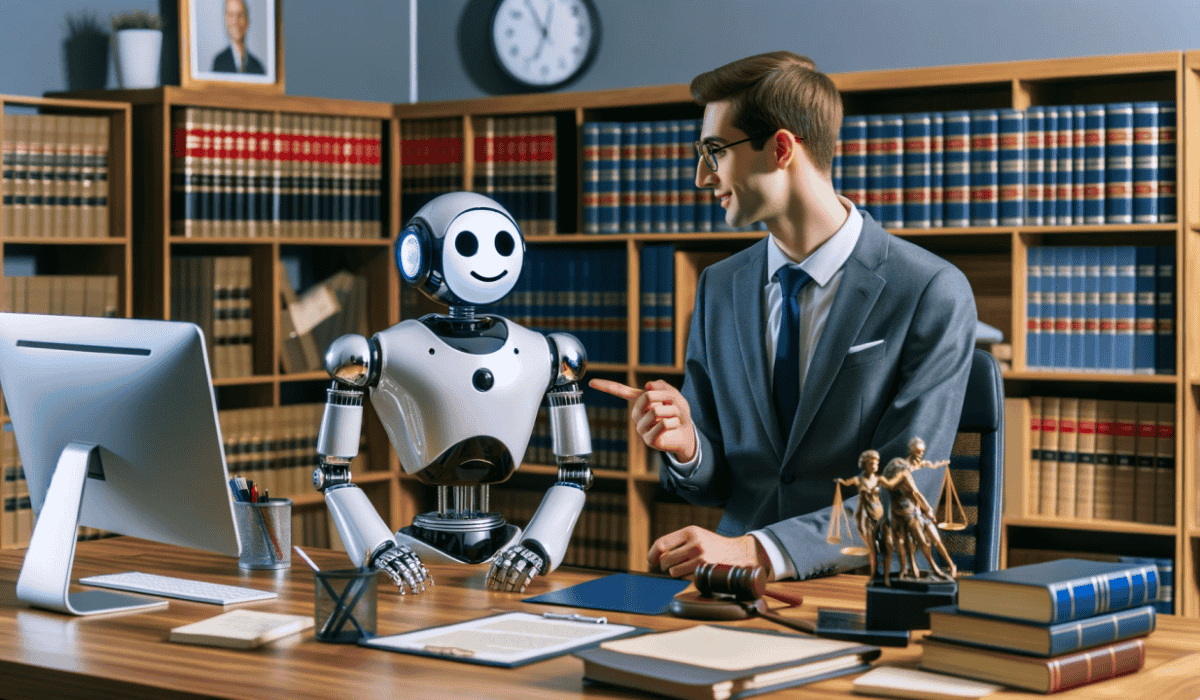Divorce is often an emotionally charged and legally complex process, involving the dissolution of a marriage and the division of assets, responsibilities, and sometimes, children. To navigate these turbulent waters, many individuals turn to divorce lawyers, whose expertise helps streamline the legal aspects of separation. As technology evolves, AI divorce lawyers are starting to reshape how we approach divorce law, providing new ways to manage and resolve cases more efficiently.
In this blog, we’ll explore the role of divorce lawyers in detail, discuss how to find the right lawyer for your needs, and look at the rise of AI divorce lawyers, an emerging trend in the legal landscape.
What Is a Divorce Lawyer?
A divorce lawyer specializes in family law, focusing specifically on the legal aspects of dissolving a marriage. They guide their clients through the divorce process, helping them understand their rights, file the necessary paperwork, and navigate negotiations or court proceedings regarding asset division, alimony, child custody, and other issues. Divorce lawyers act as advocates for their clients, ensuring that their best interests are represented in what is often a highly emotional situation.
The Role of Divorce Lawyers in the Legal Process
Divorce lawyers play a critical role in simplifying the legal complexities of ending a marriage. Whether the separation is amicable or contentious, the responsibilities of a divorce lawyer can vary widely depending on the specifics of the case.
Handling Legal Procedures
Divorce is a legal proceeding, and navigating the steps can be daunting for someone unfamiliar with the law. Divorce lawyers handle filing motions, drafting agreements, and representing clients in court if necessary. They are the key legal advisor throughout the entire divorce process, ensuring that everything proceeds smoothly.
Asset and Debt Division
One of the most contentious aspects of divorce involves dividing the marital estate. A divorce lawyer works to ensure that their client receives a fair distribution of property, assets, and debts, often dealing with complex financial issues such as business ownership, investments, and retirement accounts.
Child Custody and Support
If children are involved, divorce lawyers help negotiate custody arrangements and child support payments. These negotiations can be delicate, as both parents often have strong opinions on what is best for their children. Divorce lawyers ensure that their client’s voice is heard while prioritizing the child’s well-being.
Alimony Negotiations
Alimony, or spousal support, is another significant aspect of divorce. Divorce lawyers work to ensure fair agreements, taking into account each spouse’s financial situation, length of the marriage, and future earning potential.
Qualities to Look for in a Divorce Lawyer
Selecting the right divorce lawyer is essential to ensuring a smooth and successful outcome. Some qualities to look for include:
- Experience in Family Law: A lawyer with a strong background in family law will have the expertise needed to handle your case efficiently.
- Communication Skills: Divorce can be complex, and you need a lawyer who can clearly explain the legal process and provide regular updates.
- Negotiation Skills: Since many divorce cases are settled outside of court, it’s crucial to have a lawyer who can effectively negotiate on your behalf.
- Empathy and Compassion: Divorce is an emotional process, and a lawyer who understands the personal toll it takes can provide better support.
- Availability: It’s important to choose a lawyer who has the time and resources to dedicate to your case, ensuring that no important details are overlooked.
Types of Divorce: Contested vs. Uncontested
Divorces generally fall into two categories: contested and uncontested.
- Contested Divorce: In a contested divorce, spouses disagree on key issues such as asset division, alimony, or child custody. These divorces often involve lengthy court battles and require skilled legal representation.
- Uncontested Divorce: In an uncontested divorce, both parties agree on the terms of the separation. While these divorces are simpler and less expensive, it’s still advisable to have a lawyer review the agreement to ensure everything is fair and legally sound.
How to Choose the Right Divorce Lawyer for Your Case
Choosing the right divorce lawyer requires careful consideration of their experience, communication style, and approach to divorce cases. You can start by researching local family law attorneys, reading reviews, and scheduling consultations. During these consultations, ask about their track record with cases similar to yours, their approach to resolving conflicts, and their fees.
The Cost of Hiring a Divorce Lawyer
The cost of hiring a divorce lawyer varies depending on the complexity of the case, the lawyer’s experience, and geographic location. Many divorce lawyers charge by the hour, with rates ranging from $150 to $500 or more per hour. Some lawyers may offer flat fees for uncontested divorces, while others may require a retainer, which is an upfront payment toward future legal services.
Common Challenges Divorce Lawyers Help Overcome
Divorce lawyers are adept at helping their clients overcome a range of challenges, including:
Emotional Turmoil
Divorce is often one of the most emotionally difficult experiences a person can go through. A good divorce lawyer provides not only legal guidance but also emotional support, helping their clients stay grounded during the process.
Disagreements Over Assets
Disputes over property and financial assets are common in divorces. A divorce lawyer works to ensure a fair division based on the couple’s financial situation and legal entitlements.
Custody Battles
When parents can’t agree on custody arrangements, divorce lawyers play a critical role in advocating for their client’s preferences while keeping the child’s best interests in mind.

The Legal Steps of Divorce
The divorce process generally follows a set sequence of legal steps, including:
Filing for Divorce
The process begins when one spouse files a divorce petition with the court, outlining the reasons for the divorce and what they are seeking in terms of asset division, custody, and support.
Response to Petition
The other spouse must respond to the petition, either agreeing with the terms or contesting them.
Discovery Process
During discovery, both parties exchange information and documents relevant to the case, such as financial records.
Negotiation and Settlement
If possible, the couple will negotiate a settlement on the issues in dispute. If negotiations fail, the case may proceed to trial.
Alternative Dispute Resolution in Divorce Cases
In many divorce cases, alternative dispute resolution methods are used to avoid the expense and stress of a courtroom trial. These include:
Mediation
A neutral third party helps the couple negotiate a settlement. This process can be faster, cheaper, and less adversarial than litigation.
Collaborative Divorce
Both spouses and their lawyers work together to reach an agreement without going to court. Collaborative divorce can preserve relationships and reduce conflict.
Arbitration
An arbitrator listens to both sides and makes binding decisions, similar to a judge in court but often faster and less formal.
The Emergence of AI Divorce Lawyers
As artificial intelligence continues to revolutionize various industries, the legal field is no exception. AI divorce lawyers are now emerging as a tool to help streamline the divorce process. These systems are designed to assist individuals and lawyers by providing legal advice, drafting documents, and even negotiating settlements.
What Are AI Divorce Lawyers?
AI divorce lawyers are computer programs or applications powered by artificial intelligence. These systems can analyze legal data, answer basic questions, and guide users through the divorce process by providing tailored advice based on their unique circumstances.

Benefits of AI Divorce Lawyers
AI divorce lawyers offer several advantages, including:
- Cost-Effectiveness: AI tools can be significantly cheaper than hiring a human lawyer, making legal assistance more accessible.
- Speed and Efficiency: AI can quickly generate documents and provide answers to legal questions, saving time.
- 24/7 Availability: Unlike human lawyers, AI divorce lawyers are available around the clock to provide guidance.
Limitations of AI in Legal Processes
Despite their benefits, AI divorce lawyers have limitations:
- Lack of Emotional Understanding: AI lacks the ability to provide emotional support, which is crucial during a divorce.
- Inability to Handle Complex Cases: AI is better suited for straightforward, uncontested divorces and may struggle with more complex legal matters.
- Legal Representation: AI can’t represent clients in court or engage in negotiations as effectively as a human lawyer.
Comparing Traditional Divorce Lawyers and AI Divorce Lawyers
While AI divorce lawyers provide a more affordable and accessible option, they lack the nuanced understanding and personal touch that human lawyers offer. Traditional divorce lawyers can offer personalized strategies, navigate complex legal issues, and provide emotional support, which AI tools can’t fully replicate.
Case Study: How AI Divorce Lawyers Have Been Used
In 2019, the UK saw its first case of a couple using an AI divorce lawyer to help with their separation. The AI, designed by a legal tech firm, provided guidance and helped the couple reach a settlement without the need for lengthy legal battles. While the case was relatively simple, it showcased the potential of AI in simplifying the divorce process.
The Future of Divorce Law: Human and AI Collaboration
As AI technology advances, we’re likely to see more collaboration between human lawyers and AI systems. Lawyers may use AI to handle routine tasks such as document drafting and legal research, freeing up time for more complex and personalized work. This hybrid approach could make divorce law more efficient and affordable for clients.
Ethical Concerns Surrounding AI in Divorce Law
There are ethical questions to consider when using AI in legal matters. Can an AI system truly understand the emotional nuances of a divorce? How can AI tools ensure they are providing unbiased advice? These are questions that legal professionals and technologists will need to address as AI becomes more prevalent in the legal field.
FAQs About Divorce Lawyers and AI Divorce Lawyers
1. How long does the divorce process typically take?
The duration of a divorce depends on various factors, such as whether the divorce is contested or uncontested. Uncontested divorces can be finalized in as little as three months, while contested cases can take over a year.
2. Can I handle my divorce without a lawyer?
In some cases, yes, especially if the divorce is uncontested. However, even in simple cases, it’s advisable to consult with a lawyer or use an AI divorce lawyer to ensure everything is legally sound.
3. Are AI divorce lawyers available in all countries?
Currently, AI divorce lawyers are more commonly available in developed countries, but their presence is expanding as technology becomes more accessible globally.
4. How much does it cost to use an AI divorce lawyer?
AI divorce lawyer services are generally much cheaper than hiring a traditional lawyer. Prices vary but can range from a few hundred to a couple of thousand dollars, depending on the complexity of the case.
5. What are the risks of using an AI divorce lawyer?
The primary risk is that AI systems may not fully understand the nuances of your case or provide the same level of personalized attention as a human lawyer.
6. Will AI replace divorce lawyers entirely?
While AI is becoming more sophisticated, it is unlikely to fully replace human divorce lawyers anytime soon. The personal and emotional aspects of divorce still require a human touch.
Countdown Timer
30
Your Code: DITOPAI
- 10 Essential Facts You Must Know About Bankruptcy Attorneys in 2024 - September 4, 2024
- Top Divorce Lawyers: Expert Guidance and the Rise of AI Divorce Lawyers - September 4, 2024
- The Ultimate Guide to Personal Injury Attorneys - September 4, 2024








